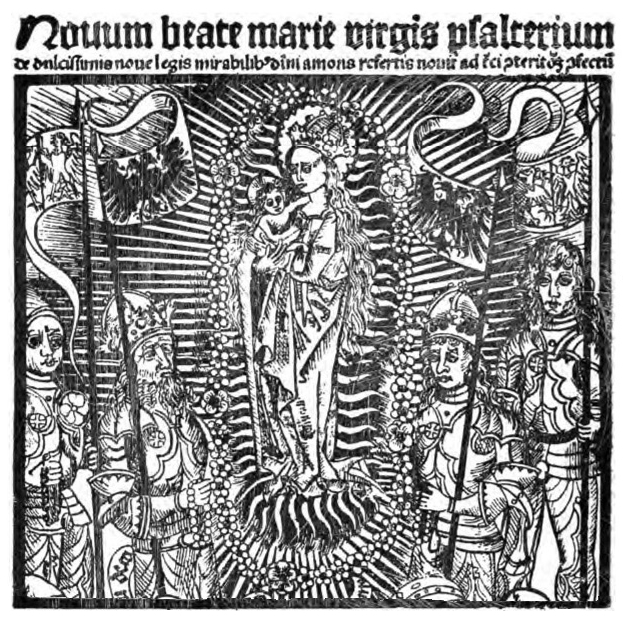 In Christianity there are large number of very wonderful texts that explain to the sincere reader about how to change their way of thinking, feeling and acting. Christianity does not lack Psychology, what is lacking is the knowledge of how to apply the Christian Psychological teaching.
In Christianity there are large number of very wonderful texts that explain to the sincere reader about how to change their way of thinking, feeling and acting. Christianity does not lack Psychology, what is lacking is the knowledge of how to apply the Christian Psychological teaching.
The Philokalia or “love of the beautiful”
There is a compilation of different authors which is still used in the Eastern Churches, especially for the instruction of monks. It is known as “Philokalia” and it is essentially pure experimental Psychology.
In ‘St Symion the New Theologian: 150 Practical and Theological Texts’ from Philokalia:
“1.To have faith is to die for Christ and for His commandments;
to believe that this death brings life;
to regard poverty as wealth,
and lowliness and humiliation as true glory and honor;
to believe that by not possessing anything one possesses everything [2 Cor. 6:9-10]
or, rather, that not possessing anything is to possess the ‘unsearchable riches’ of the knowledge of Christ [Eph. 3:8];
and to look upon all visible things as dross [waste matter; refuse] and smoke.”
– Philokalia Vol. 4
Clearly this text is showing us that we must change our way of thinking and feeling. To think of “lowliness and humiliation as true glory and honor” and of “poverty as wealth”: is this not a transformational Psychology?
Read More [PDF] (Offsite)
The Imitation of Christ
In the famous book by Thomas à Kempis, “The Imitation of Christ”, we can also read about Christian Psychology:
“What good does it do to speak learnedly about the Trinity if, lacking humility, you displease the Trinity?
Indeed it is not learning that makes a man holy and just, but a virtuous life makes him pleasing to God.
I would rather feel contrition [feeling remorseful] than know how to define it.
For what would it profit us to know the whole Bible by heart and the principles of all the philosophers if we live without grace and the love of God?
Vanity of vanities and all is vanity, except to love God and serve Him alone.”
– Imitation of Christ Book 1, Ch. 1
Here we see that the practice of “a virtuous life” is the key. This is why the Christian doctrine places so much emphasis on the cultivation of ‘virtues’ which are the manifestation of the practice of the Christian Psychological teaching.
Read More [PDF] (Offsite)
The Three Theological Virtues
In theology and Christian philosophy, are the character qualities associated with salvation, resulting from the grace of God, which enlightens human mind:
- Faith (relying on God, and in the truth of His revelation as well as obedience to Him)
- Hope (expectation of receiving; refraining from despair and the capability of not giving up)
- Charity/Love (selfless, unconditional, and voluntary loving-kindness such as helping one’s neighbors)
They occur in the Bible at 1 Corinthians (13:13):
“And now abideth faith, hope, and love, even these three: but the chiefest of these is love”.
Read More (Offsite)
The Four Cardinal Virtues
- Prudence (able to judge between actions with regard to appropriate actions at a given time)
- Justice (proper moderation between self-interest and the rights and needs of others)
- Temperance/Restraint (practicing self-control, abstention, and moderation)
- Fortitude/Courage (forbearance, endurance, and ability to confront fear and uncertainty, or intimidation)
In the Old Testament the four cardinal virtues are listed in the Book of Wisdom (8:7):
“Or if one loves justice the fruits of her works are virtues; For she teaches moderation and prudence, justice and fortitude, and nothing in life is more useful for men than these.”
They are also listed in apocryphal literature, in 4 Maccabees (1:18-19) we can read:
“Now the kinds of wisdom are right judgment, justice, courage, and self-control. Right judgment is supreme over all of these since by means of it reason rules over the emotions.”
Read More [PDF] (Offsite)
The Seven Heavenly Virtues
The Seven Heavenly Virtues have been derived from the Psychomachia (“Contest of the Soul”), an epic poem written by Aurelius Clemens Prudentius (c. AD 410) which describes the battle of good virtues and evil vices. Practicing these virtues is considered to protect one against temptation from the seven deadly sins, with each one having its counterpart.
| VIRTUE | VICE |
|
Lust Gluttony Greed/Covetousness Sloth/Laziness Wrath/Anger Envy Pride (vanity and shame) |
Read More (Below)
The Beatitudes
The Beatitudes are a set of teachings that appear in the Gospels of Matthew and Luke. The term Beatitude comes from the Latin adjective beatus which means happy, fortunate, or blissful. Each Beatitude consists of two phrases: the condition and the result. They are considered to be a set of Christian ideals that focus on love and humility, echoing the highest ideals of the Christian Doctrine based on mercy, spiritual cultivation and compassion.
From the Gospel of Matthew (5:3-12):
- Blessed are the poor in spirit: for theirs is the kingdom of heaven.
- Blessed are they that mourn: for they shall be comforted.
- Blessed are the meek: for they shall inherit the earth.
- Blessed are they which do hunger and thirst after righteousness: for they shall be filled.
- Blessed are the merciful: for they shall obtain mercy.
- Blessed are the pure in heart: for they shall see God.
- Blessed are the peacemakers: for they shall be called the children of God.
- Blessed are they which are persecuted for righteousness’ sake: for theirs is the kingdom of heaven.
From the Gospel of Luke (6:20-22).
- Blessed are you the poor: for yours is the kingdom of God.
- Blessed are you that hunger now: for ye shall be filled.
- Blessed are you that weep now: for ye shall laugh.
- Blessed are you when men shall hate you, and when they shall separate you from their company, and shall reproach you, and cast out your name as evil, for the Son of man’s sake.
Read More (Offsite)
Christian Practice(s) and Resources:
We must learn how to apply the Authentic Psychology of the Christian Teaching to ourselves and not just blindly follow rules or laws without comprehending their purpose. It is only in this way that we can become Conscious of what we are doing and why, instead of just mechanically repeating what others tell us.
“A virtue is an habitual and firm disposition to do the good. It allows the person not only to perform good acts, but to give the best of himself. The virtuous person tends toward the good with all his sensory and spiritual powers; he pursues the good and chooses it in concrete actions.” (from Part 3, Section 1, Ch. 1 – Article 7 of A full catechism of the Catholic religion by Joseph Deharbe)
“The goal of a virtuous life is to become like God.” (St. Gregory of Nyssa in De beatitudinibus)
More information about Virtues (Offsite)
Explanation of the Seven Heavenly (or Holy) Virtues
According to Christian Theology:
- Restraint is the cornerstone of the seven holy virtues.
The other holy virtues are created through selfless pursuits:
- Valor (or Chastity) through the Pursuit of Knowledge
- Generosity through the Pursuit of Charity
- Liberality (or Temperance) through the Pursuit of Will
- Diligence through the Pursuit of Ethics
- Patience through the Pursuit of Peace
- Kindness through the Pursuit of Love
- Humility through the Pursuit of Modesty
The original seven heavenly virtues from the epic poem Psychomachia (“Contest of the Soul”), by Prudentius the were in Latin:
- Chastity or Castitas meaning Purity, knowledge, honesty, wisdom
- Abstaining from improper sexual conduct; the practice of courtly love and romantic friendship. Cleanliness through cultivated good health and hygiene, and maintained by refraining from intoxicants. To be honest with oneself, one’s family, one’s friends, and to all of humanity. Embracing of moral wholesomeness and achieving purity of thought-through education and betterment. The ability to refrain from being distracted and influenced by hostility, temptation or corruption.
- Temperance or Temperantia meaning Self-Control, justice, honour, abstention
- Restraint, temperance, justice. Constant mindfulness of others and one’s surroundings; practicing self-control, abstention, moderation, zero-sum and deferred gratification. Prudence to judge between actions with regard to appropriate actions at a given time. Proper moderation between self-interest, versus public-interest, and against the rights and needs of others.
- Charity or Caritas meaning Will, benevolence, generosity, sacrifice
- Generosity, charity, self-sacrifice; the term should not be confused with the more restricted modern use of the word charity to mean benevolent giving. In Christian theology, agäpé (charity or love) is the greatest of the three theological virtues.
- Love, in the sense of an unlimited loving kindness towards all others, is held to be the ultimate perfection of the human spirit, because it is said to both glorify and reflect the nature of God. Such love is self-sacrificial. Confusion can arise from the multiple meanings of the English word “love”. The love that is “caritas” is distinguished by its origin – being divinely infused into the soul – and by its residing in the will rather than emotions, regardless of what emotions it stirs up. This love is necessary for salvation, and with it no one can be lost.
- Diligence or Industria meaning Persistence, effort, ethics, rectitude
- A zealous and careful nature in one’s actions and work; decisive work ethic, steadfastness in belief, fortitude, and the capability of not giving up. Budgeting one’s time; monitoring one’s own activities to guard against laziness. Upholding one’s convictions at all times, especially when no one else is watching (integrity).
- Patience or Patientia meaning Peace, mercy, ahimsa, sufferance
- Forbearance and endurance through moderation. Resolving conflicts and injustice peacefully, as opposed to resorting to violence. Accepting the grace to forgive; to show mercy to sinners. Not killing or being violent in any way to any life form or sentient being; to practice moderation of meat consumption and consistent life ethic. Creating a sense of peaceful stability and community, rather than engendering suffering, hostility and antagonism..
- Kindness or Humanitas meaning Satisfaction, loyalty, compassion, integrity
- Charity, compassion and friendship for its own sake. Empathy and trust without prejudice or resentment. Unselfish love and voluntary kindness without bias or spite. Having positive outlooks and cheerful demeanor; to inspire kindness in others.
- Humility Humilitas meaning Bravery, modesty, reverence, altruism
- Modest behavior, selflessness, and the giving of respect. Humility is not thinking less of yourself, it is thinking of yourself less. It is a spirit of self-examination; a hermeneutic of suspicion toward yourself and charity toward people you disagree with. The courage of the heart necessary to undertake tasks which are difficult, tedious or unglamorous, and to graciously accept the sacrifices involved. Reverence for those who have wisdom and those who selflessly teach in love. Giving credit where credit is due; not unfairly glorifying one’s own self. Being faithful to promises, no matter how big or small they may be. Refraining from despair and the ability to confront fear and uncertainty, or intimidation.
